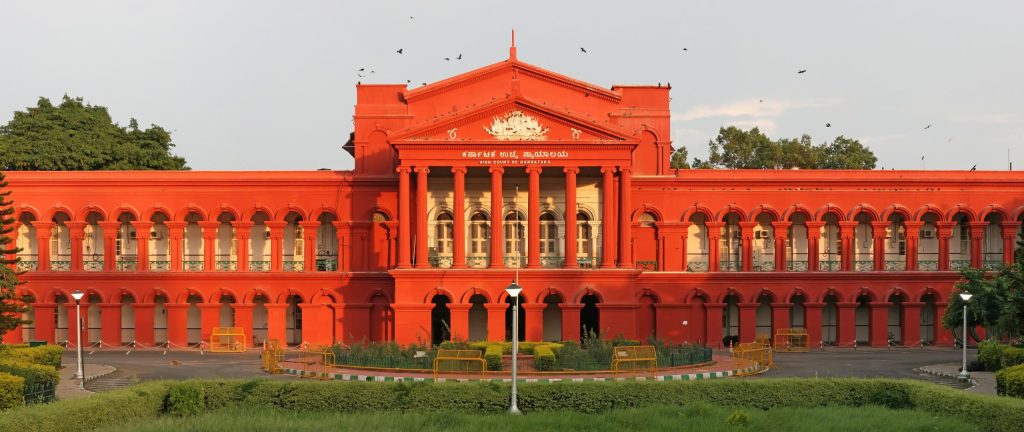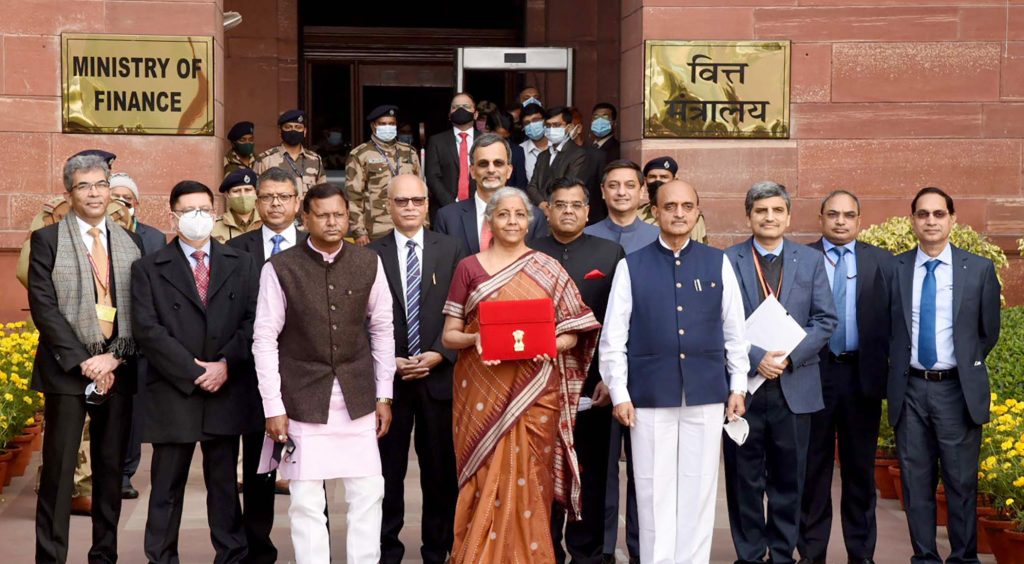Now Reading: Kedar Pandey vs Narain Bikram Shah [Civil Appeal No. 976 and 977 of 1964]
-
01
Kedar Pandey vs Narain Bikram Shah [Civil Appeal No. 976 and 977 of 1964]
Kedar Pandey vs Narain Bikram Shah [Civil Appeal No. 976 and 977 of 1964]
Kedar Pandey vs Narain Bikram Shah
Brief Essence
This Indian case has briefly described the Concept of Domicile of Origin and the Domicile of Choice and the difference between the two. The Case specifically defines as to how a person has to prove or fulfill certain conditions in order to get a Domicile of Choice of a new country and how and when the Domicile of Origin stays in abeyance. This concept of Domicile holds a relatively higher pedestal in the realm of Private International Law. Many Courts in different jurisdictions, especially the English Courts have helped in evolving the jurisprudence behind the concept of Domicile of Origin and Domicile of Choice.
The two main conditions which needs to be fulfilled for proving the Domicile of Choice are Physical Residency and animus manendi (intention to reside permanently in the Country of Domicile of Choice with your family with the aim of settling their indefinitely).
In this case the Supreme Court has dealt with the complexity of issues and held that an existing domicile is presumed to be in existence until proved that a new domicile has been acquired, because a person cannot be without a Domicile. Hence, the burden of proving a change in Domicile is variably upon the person who alleges that there has been a change in the status of his Domicile. If the evidence is not conclusive in nature, then the court generally decided in the favor of the existing Domicile which is the Domicile of Origin.
Parties
- The Appellant, Kedar Pandey is a contesting candidate from Congress Party for competing the 1962 election for Bihar Legislative Assembly from Ramnagar Constituency in the District of Champaran.
- The Respondent, Narain Bikram Shahis a contesting candidate from Swatantra Party for competing the 1962 elections for Bihar Legislative Assembly from Ramnagar Constituency in the District of Champaran.
Facts
- Appellant and the Respondent are the contesting candidates for Bihar Legislative Assembly Elections in 1962 from Ramnagar constituency in the district of Champaran.
- After the election was conducted, Narain Bikram Shah (respondent) in the present case was declared as the elected member of the Bihar Legislative Assembly from Ramnagar Constituency in the District of Champaran.
- On April 11, 1962 Kedar Pandey filed a petition challenging the validity of the Respondent elected as a member of the Bihar Legislative Assembly. It was alleged by the Appellant that the Respondent is not duly qualified under Article 173 of the Indian Constitution, to be a member of the Assembly as he is not a citizen of India. The parents and grandparents of the Respondent were born in Nepal and therefore on the date of the election Respondent was not qualified to be a member.
- The Respondent in its petition contested that he was an Indian Citizen at the time of election as he lived in India since his birth and was a resident of Ramnagar in the district of Champaran and was not born in Barewa, Nepal. The Respondent contended that he was born in Banaras.
- After due consideration of the contentions of both the parties, the Election Tribunal held that the Respondent was not a citizen of India at the time of election and therefore not qualified under Article 173 of the Indian Constitution to fill in the seat of a member of the legislative assembly.
- The Tribunal refused to pass a decree entitling the Appellant to be elected as a member of the Legislative Assembly for Ramnagar constituency. Both the Appellant and the Respondent appealed separately in the High Court of Patna against the Judgment of the Tribunal.
- The High Court of Patna upon examining the contentions found that as the Respondent was born in the city of Banaras in 1918 and was living in India since 1939 up to 1949 and even thereafter. The High Court opined that before the year 1949 the Respondent acquired the Domicile of Choice in the Indian Territory, and therefore acquired the status of an Indian Citizen under Article 5(a) and Article 5(c) of the Indian Constitution. Therefore, the High Court took a view that the Respondent was an Indian Citizen and was duly qualified under to be a member of the Bihar legislative assembly.
- Aggrieved by the decision of the High Court, the Appellant has filed an appeal before the Supreme Court of India to address the below issues[1].
Issues
- Whether the High Court was right in its conclusion that the Respondent Narain Raja was a citizen of India under Article 5 of the Constitution of India on the material date?
- Whether Narain Raja had his domicile in the Territory of India at the material date?
- Whether Narain Raja had acquired the Domicile of Choice in India?
Applicable Laws
- Artcle 5[2] of the Indian Constitution: Citizenship at the Commencement of the Constitution.
- Article 173 of the Indian Constitution: Qualification for membership of the State Legislature[3].
Decision
The Supreme Court after examining the above issues was of the opinion that Narain Bikram Shah, long time before 1949 which is the material time prescribed under Article 5 of the Constitution, had acquired a domicile of Choice in India. It is to be noted by the acts of Narain Raja that he formed a deliberate intention of making his home with the intention of permanently residing establishing himself and his family in India. In the opinion of the Supreme Court, the requisite animus manendi has been proved and the finding of the High Court deems fit and appropriate.
Therefore, as Narain Raja was ordinarily resident in India for 5 years immediately preceding that time mentioned in Article 5 of the Constitution came into force, and requirements under Article 5 (c) were satisfied, it is to put on record that Narain Raja was a citizen if India at that relevant time.
The Supreme Court observed the decisions passed in the English Cases of Udny vs Udny [4]and Doucet vs Geoghegan [5]and observed that the only intention which is required for a proof of change of domicile is an intention of permanent residence. In other words, what is required to be established is that the person who alleges to have changes the domicile of origin and had acquired a domicile of choice has voluntarily fixed the habitation of himself and his family in the new country, not for a special or temporary purpose but with the intention of residing there permanently.
Case Analysis
The present case deals with the concept of Domicile in the realm of Private International Law. The Concept of Domicile of Origin and Domicile of Choice are two different concepts, and both the concepts need to be understood in order to determine a person’s residential status.
The law is well established but it becomes difficult to implement the concepts of the underlying law depending upon the circumstances of each case. The person at birth gets conferred by law the right to Domicile of Origin. The person gets the Domicile of Origin of the country in which he/she is born. If they want to change the status of that Domicile to a Domicile of a new country, then that Domicile is called the Domicile of Choice. These two domiciles differ from each other in every aspect.
A person continues to retain the Domicile of Origin as long as he or she does not acquire a new Domicile of Choice. The moment a person gives up his Domicile of Choice, his Domicile of Origin revives which remained in abeyance. So, the Domicile of Origin remains with the person till his last breath.
The Domicile of Choice is acquired by a person by the actual removal of the Domicile of Origin accompanied by his animus manendi (intention). A legitimate child born out of a legal marriage gets the Domicile of his father at the time of the Birth, whereas a posthumous child receives the Domicile of his Mother at the time of birth.
A person in order to get a Domicile of Choice has to fulfil certain conditions such as:
- Residence in the Country of Domicile of Choice
- Intention to live in the country of Domicile of Choice permanently
As per Section 10 of the Indian Succession Act 1925, “a man is deemed to acquire a Domicile of Choice by taking up his fixed habitation in a country which he supposes to be his Domicile of Choice[6]”. In other words, factum et animus must be present. The Residence along with the intention must co-exist. If Residence and Intention co-exists, then neither the character nor its duration of stay is in any way material.
The residence of a person is regarded as the tangible facts and not more than a physical presence in the locality from which intention of a person can be inferred, while the intention of a person is regarded as an intangible fact which can be collected from certain tangible acts in which it is established. [7]
It is animus manendi which is required when the person whose domicile is the object of inquiry and he or she must have formed a fixed and settled purpose of making his principle or permanent home in the Country of Domicile of Choice. Therefore, the onus of proving the intention to reside in the Country of Domicile is upon the person who asserts that his Domicile of Origin has been lost and substituted with the Domicile of Choice. So, as per the case of Winans vs Attorney General [1904] AC 287, the Domicile of Origin continues until and unless a fixed and deliberate intention of abandoning the first domicile and acquiring the new domicile is clearly shown[8].
The Supreme Court also analyzed various other English landmark judgments where the intention of the party to reside permanently in the Domicile of Choice has to be established. In the case of House of Lords in Moorhouse vs Lord [10 HL Cas. 272], it was held that in order to lose the Domicile of Origin, and to acquire a Domicile of Choice, a man must change his/her nationality and must also intend quatenus in illo exuere patriam, which forms a part of natural commitment. Therefore, it is not enough to buy a new house in the country with the possibility of belief that he may remain there for rest of his life[9].
Also, in the case of Udny vs Udny, LR 1 HL 441, it was held that the only intention required for a proof of change of Domicile is an intention of permanent residence. Therefore, a person must prove that he is willing to stay with his permanently in the Country of Domicile of Choice with his clear intention and not residing there for temporary or special purpose for a short period of time. So, this test was applied in analyzing whether Narain Raja formed an intention to permanently reside in India with the intention of establishing himself and his family in India[10].
In the present case, SC decided the above issues after observing the relevant acts of Narain Raja which clearly depicted his intention to permanently reside in the territory of India and to acquire a Domicile of Choice. Narain Raja was educated from the University of Calcutta in 1938 after 4 years of graduation, and after that he lived in Ramnagar. After the Death of Rama Raja, the father of Narain Raja in 1947, lived in Ramnagar and possessed the properties of his father which his father received from his father Mohan Raja and held them in the territory of India since 1937.
Narain Raja also contended that his father between 1934 and 1941 built a palace in Ramnagar where Narain Raja used to live before he made up his own house in Ramnagar. He also provided the exhibits which clearly shows that a partition suit is also going on between him and his brothers since 1942 with regards to ancestral property. Narain Raja also contended that after the partition, Narain Raja was solely looking after the properties which were left joint and was the manager thereof. The forests of their Ramnagar estate were not partitioned and were held jointly by all the brothers. Narain Raja also contended that he holds various properties in the cities of Bettiah, Chapra, Patna and Benaras. It is also to be noted that Narain Raja obtained an Indian Passport issued by the Governor General of India at Lucknow stating that Narain Raja was an Indian Citizen and his residence being at Ramnagar.
The High Court while deciding this case took into view the facts and circumstances and the course of conduct of a person before and after the relevant time for deciding the question of Domicile of Choice. The High Court took the view of Chancery Court in the case of Grove Vaucher vs The Solicitor to the Treasury (1889) 40 Ch. 216, where it was held that “the domicile of a person is constituted by the factum of residence in a country and the animus manendi that is the intention to reside in a country for an indefinite period of time. Therefore, in order to determine an intention of the person at any particular time, you may not only give regard to conduct and acts before and at that time, but also the acts and conduct after the relevant time, which are relative and have proper weight of cogency[11]”.
Therefore, the conduct and acts of Narain Raja after 1949 were relevant in deciding the question of his domicile in the light of his conduct and activities prior to 1949. It has to be noted that Narain Raja married in 950 and his wife belonged to Darkoti in Himachal Pradesh and it took place in Benaras. Narain Raja had a son and a daughter from this wedlock. In 1950, Narain Raja had established a Sanskrit Vidalya in Ramnagar in the name of his mother. There was also a Union Board in Ramnagar before Gram Panchayats had come into existence of which Narain Raja was the Chairman. Narain Raja was also elected as the Vice-President of the Union called CDCM Union of Ramnagar and was also a voter from Ramnagar Constituency. In the general election of 1957, Narain Raja stood as an opposing candidate in front of Kedar Pandey, and he became the president of the Bettiah Sub-Divisional Swatantra Party and the Vice-President of Champaran District Swatantra Party.
So, after taking all the facts and circumstances in view, the Supreme Court decided that Narain Raja had acquired a Domicile of Choice in India and satisfies the material conditions under Article 5 of the Indian Constitution and was an ordinarily resident in India for 5 years immediately preceding the time under Article 5 of the Indian Constitution. Narain Raja formed a deliberate intention of making a permanent home in India and establishing his family here. Therefore, the requisite animus manendi has been proved and it upheld the decision passed by the High Court of Patna[12].
[1] Kedar Pandey vs Narain Bikram Shah, Civil Appeal No. 976 and 977 of 1964.
[2] Indian Constitution, Art.5
[3] Indian Constitution, Art. 173
[4] Udny vs Udny, LR. 1 HL 44.
[5] Doucet vs Geoghegan, 1978 9 Ch. D 441.
[6] Section 10, Hindu Succession Act 1925.
[7] Paras Diwan, Private International Law, 155, 158 (4th Edition, 1998).
[8] Winans vs Attorney General [1904] AC 287.
[9] House of Lords in Moorhouse vs Lord 10 HL Cas. 272].
[10] Supra 4.
[11] Grove Vaucher vs The Solicitor to the Treasury (1889) 40 Ch. 216.
[12] Supra 1.
Author: Shrey Mohan
Shrey Mohan is a 4th Year BBA.LLB Student at Bennett University. He has a keen interest in Intellectual Property Laws, Mergers and Acquisitions, Competition and Commercial Laws.








